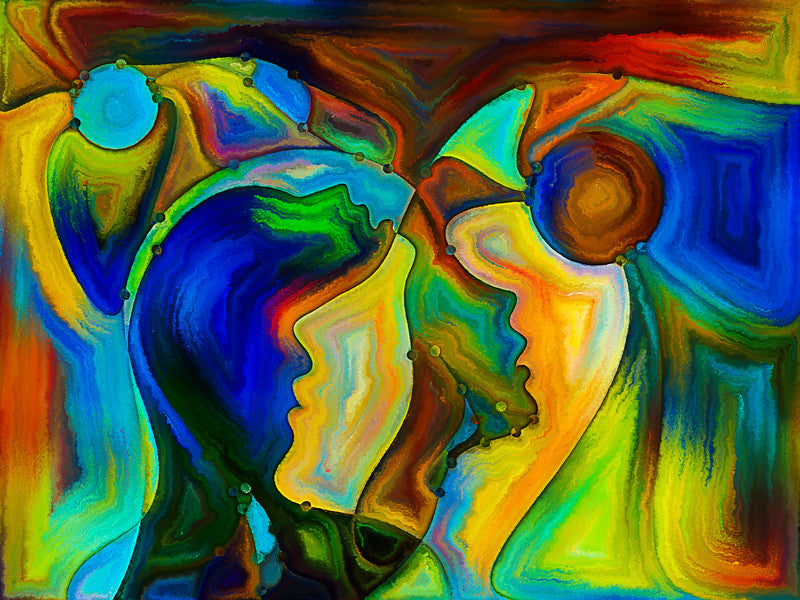Shop
BY PRODUCT
BY INTENTION
Discover
ABOUT US
COMPANY

By Dr. Itai Ivtzan
Here is an interesting way to examine the relationship between psychology and spirituality: join a group of psychologists and drop into the conversation a few spiritual concepts - talk about transcendence, oneness, unity consciousness, and the sacred. The contemptuous faces you then receive are directly correlated with the number of spiritual concepts you were sharing. It’s a very similar experience the other way around: join a group of spiritual seekers and discuss the beauty of the mind, and the power of science. Again, you probably won’t end up as their best friend. For the last 15 years I have been a psychology university professor while at the same time submerging myself in spirituality. I have spent long years studying, travelling the world, listening to lectures conceived in the most fascinating minds, and conferring with great teachers in monasteries. These experiences revealed to me the power of psychology and spirituality. I discovered the amazing knowledge and depth they both offer, and the wonderful way in which they support our growth process. But it also became obvious that the two were irreconcilable; it was almost as if they were perceived as rivals, as contrasting ways to understand life that could never converge. In the academic milieu, where I have been teaching and conducting research, spirituality was frequently frowned upon, perceived as esoteric and metaphysical, a sphere that could not be part of the scientific realm. At the same time, whenever I associated with spiritual groups, participated in satsangs (talks conducted by spiritual teachers with their disciples), and spent time in spiritual retreats, science and psychology seemed out of place. I was torn; whatever group I was part of lacked certain aspects that were available in the other group. The feeling that something was missing spurred me to start my own work, my own personal journey, and merge the teachings of both the psychological and spiritual worlds. The results were amazing: With time, I felt increasingly liberated. I became better acquainted with my authentic self and began to understand my role in the play called life. What were my insights to do with the relationship between psychology and spirituality?
The word "psychology" comes from Greek: “psyche” is the word for "mind" or "soul", and “logos” means study. In other words, psychology is the study of the mind or the soul. Significantly, in the West psychology is only referred to as the study of the mind, whereas the “soul” part is completely ignored. Although psychology could have been the discipline that brought together the mind and the soul, the purely analytical approach adopted in the West was unable to accommodate the soul. Psychology, therefore, deals with the mind: the way we think, consciously form concepts, understand the world around us and make sense of it. Spirituality could be defined in many different ways and yet it is frequently regarded as a practical tool to achieve self-growth, because it paves the way for transcendence. It helps us transcend the analytical functioning and cognitive processing of the mind, and makes room for other experiences.
Psychology and spirituality could be described as “feet on the ground, head in the sky”. Psychology represents the "grounding" effect, in which the mind is used for thinking, rationalizing, and understanding life. This is an essential part of our lives – the mind is a beautiful tool that, as long as we are in control over it, allows us to make conscious choices which are beneficial for us. Spirituality transcends rational thought and evolves intuitively over one's lifetime. As part of that experience you won’t engage with the moment while using the mind as an interpreter; instead, you allow your awareness to embrace the moment as it is and simply be there, in the deliciousness of presence. I wholeheartedly believe that living a full life would mean embracing these different aspects of life, and maintaining a balance between them. Most people tend to search for a single unambiguous answer and dismiss all others. They either follow the mind-oriented psychological path or the present, self-transcending, one. By adhering to their one-sided views, both groups are restricting themselves. While being well equipped to deal with certain situations, they are ill equipped to deal with others. Rather than being contradictory, mind-based and intuitive-based experiences are complementary. They represent two aspects of the entity we call life. Certain moments in life require mind-oriented skills, while in others one must let go of the mind and act intuitively. Having both options at one's disposal at any given moment offers greater flexibility and taking action properly. This could happen only when both the psychological and the spiritual are alive within you. To realize in full the potential of growth in your life, you must be able to shift between the psychological and the spiritual poles in accordance with the situation and at your own choice.